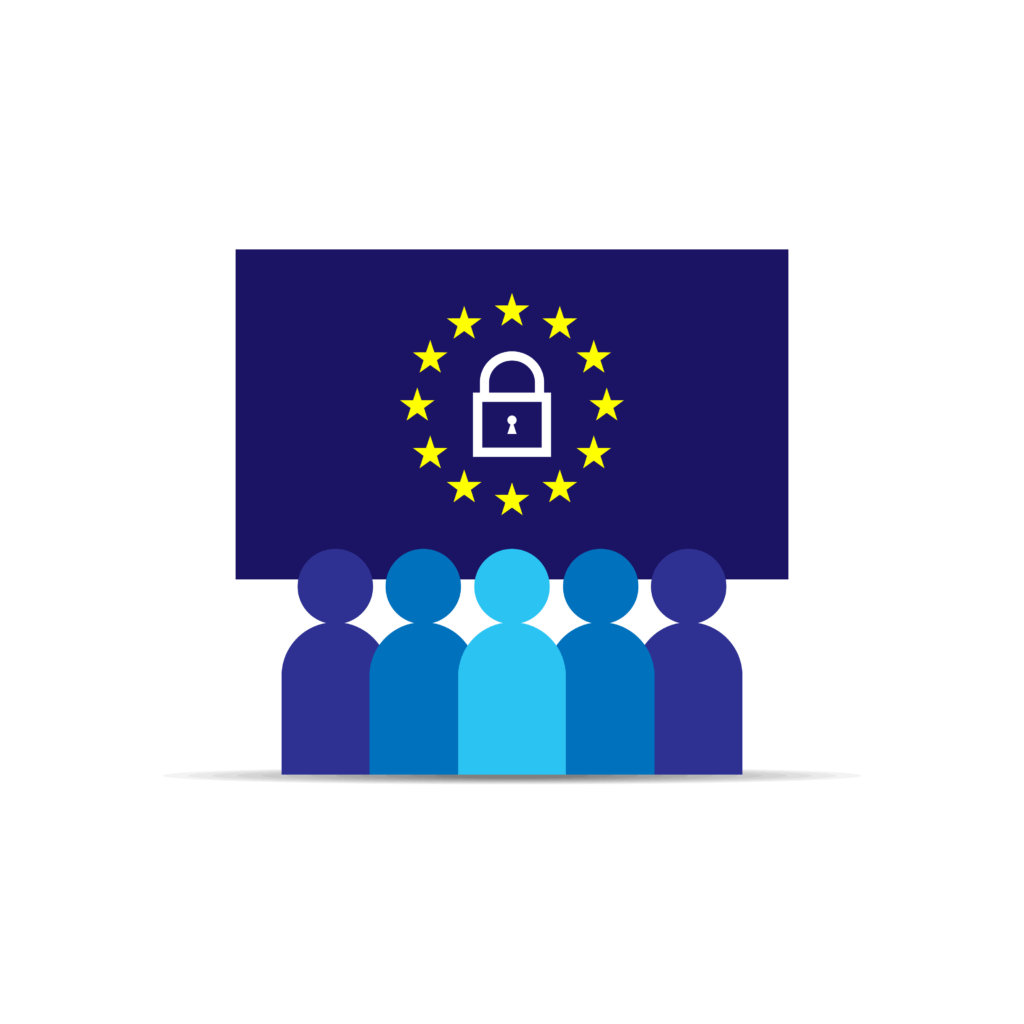THE General Data Protection Regulation (GDPR) came into effect in May 2018, marking a major shift in how businesses and organizations handle European citizens' personal data. Since then, the GDPR has continued to evolve to better protect individual privacy and adapt to technological advances. In this article, we'll take an in-depth look at the latest GDPR developments and their impact on businesses and citizens.

The foundations of the GDPR
THE GDPR was designed to give European citizens greater control over their personal data. It requires organizations to be more transparent about how they collect, use, and store data, while strengthening penalties for non-compliance.
The main new features
One of the main new features of the GDPR is the increase in penalties for non-compliance. Fines can now reach up to 4.1% of a company's annual global turnover. This measure aims to deter companies from neglecting data protection.
The GDPR introduces the right to data portability, which means individuals can request that an organization transfer their personal data to them in a machine-readable format. This gives users more control over their personal information.
Consent for data processing must now be explicit and specific. Companies can no longer assume tacit consent. Individuals must be clearly informed of how their data will be used.
The right to be forgotten, also known as the right to erasure, allows individuals to request the deletion of their personal data if it is no longer necessary for the purposes for which it was collected.
The GDPR requires certain organizations to appoint a Data Protection Officer (DPO), who is responsible for overseeing compliance with the regulation. The DPO is a key person in ensuring that the company complies with the provisions of the GDPR.
Businesses must conduct data protection impact assessments to identify and mitigate potential risks associated with the processing of personal data. This helps prevent data breaches.
The impact on businesses
The impact of the GDPR The impact on businesses is not limited to regulatory compliance; it is also revolutionizing the way they approach personal data management. The new provisions of the GDPR require a fundamental change in organizational culture and the management of sensitive information.
First, companies must invest more in data protection. This means not only securing stored data, but also implementing rigorous protocols for collecting, processing, and transmitting it. Companies must implement advanced security measures to proactively protect data from potential breaches. This includes data encryption, real-time monitoring of suspicious activity, and employee training on data security best practices.
Additionally, staff training is a key component of GDPR compliance. Employees must be aware of their responsibilities regarding personal data protection. They must understand the principles of the GDPR, know how to properly handle sensitive information, and be able to recognize and report any potential data breaches. Raising employee awareness is essential to minimize risks and ensure ongoing compliance.
The establishment of more transparent processes is also a major requirement of the GDPRBusinesses must clearly document and report on how they collect, process, and store personal data. This includes keeping data processing records, creating transparent privacy policies, and clearly communicating the purposes for which data is collected. Transparency builds customer trust because customers have a better understanding of how their data is used.
Although the GDPR compliance While GDPR compliance may seem demanding for businesses, it also presents opportunities. By investing in data protection and adopting transparent practices, companies can improve customer trust. Customers are increasingly concerned about how their data is managed, and a company that demonstrates a commitment to privacy is more likely to earn their trust and loyalty. Ultimately, GDPR compliance can become a competitive advantage, strengthening the company's reputation for privacy and thus attracting new customers concerned about the security of their data.
In conclusion, the GDPR represents not only a burden for businesses, but also an opportunity. It requires investments in data protection, employee training, and process transparency, but these efforts can result in greater customer trust and a stronger reputation for privacy. Companies that embrace these principles are better positioned to thrive in a digital landscape focused on data privacy.
The impact on citizens
European citizens benefit from greater protection of their privacy thanks to new features of the GDPRThey have more control over their data and can be more confident in how companies handle their personal information. This also strengthens their right to privacy online.
There compliance continue
Ongoing GDPR compliance is a critical aspect of personal data management for businesses. Unlike many other regulations that can be treated as one-off tasks, GDPR requires constant monitoring and adaptation to regulatory changes. Here's why ongoing compliance is crucial:

Evolution of regulations: Data protection regulations are constantly evolving to reflect technological advances and new privacy threats. Therefore, businesses must stay up to date on changes to the GDPR, including amendments and guidance issued by data protection authorities. Ignoring these developments can lead to serious penalties.
Internal changes: Businesses also evolve over time. They may introduce new products, services, or systems, or expand their geographic reach. Each of these changes can impact how personal data is collected, processed, and stored. Compliance with the GDPR must be continually reassessed to adapt to these internal changes.
Violation Management: In the event of a data breach, businesses must respond quickly to minimize damage. Ongoing compliance includes maintaining up-to-date incident response plans and ensuring employees are trained to effectively handle breaches. The GDPR also requires breach reporting within the regulatory timeframes.
Reputation Protection: Continuous compliance strengthens a company's reputation for privacy protection. Customers are more likely to trust a company that demonstrates a consistent commitment to protecting their personal data. Loss of trust due to a data breach can be difficult to recover, hence the importance of maintaining high standards of compliance at all times.
Role of data protection authorities: Data protection authorities are responsible for ensuring that companies comply with GDPR rules. They have the power to audit companies, impose penalties for non-compliance, and provide advice and guidance on how to comply with the regulations. Businesses should therefore stay in contact with these authorities and take their recommendations into account.
In short, ongoing GDPR compliance is an ongoing process that requires constant vigilance on the part of businesses. It is not a mere formality, but an ongoing commitment to protecting individual privacy. Companies that integrate this approach into their organizational culture are better prepared to address the ever-evolving challenges of personal data protection and maintain customer trust.
Conclusion
THE GDPR introduced many new provisions aimed at strengthening individual privacy protection and making organizations more accountable for their personal data processing. Businesses must be aware of these new provisions and invest in compliance to avoid heavy penalties. For European citizens, the GDPR offers better protection of their personal data and strengthens their right to privacy. It is essential to continue monitoring GDPR developments to remain compliant and protect everyone's privacy.
